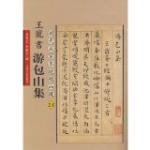|
This section contains 785 words (approx. 3 pages at 300 words per page) |

|
Historically speaking, Wang Chong is one of the best-known thinkers of Han China (221 BCE–220 CE), but the significance of his ideas is far less certain. Wang's native province of Guiji stood on the southeast margins of the Han Empire. Although once studying in the capital Luoyang, he remained basically an obscure local figure. He wrote several books and the most important and only surviving one is the Lunheng. This book was not known to the national elite community until the late second century, since then being recognized as a major intellectual work.
Modern opinions split on the nature of the Lunheng. Many believe the book reveals Wang as an iconoclast and skeptic who courageously denounced the Confucian orthodoxy and prevalent superstitions. Some, in contrast, consider him a mere rhetorician whose inconsistent arguments seek to justify the existence of people like himself, namely...
|
This section contains 785 words (approx. 3 pages at 300 words per page) |

|


